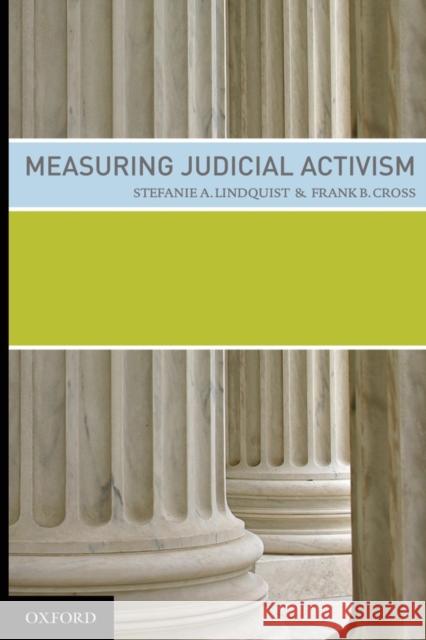Measuring Judicial Activism » książka
Measuring Judicial Activism
ISBN-13: 9780195370850 / Angielski / Twarda / 2009 / 192 str.
Measuring Judicial Activism supplies empirical analysis to the widely discussed concept of judicial activism at the United States Supreme Court. Complaints about activist Court decisions are common within contemporary political discourse, but these objections often have little substantive meaning beyond the speaker's disagreement with particular case outcomes. Frequently debated by legal scholars, judicial activism is shaped by the participants' ideological perspectives as well as by their subjective views regarding ambiguous constitutional provisions. Although no study can be perfectly objective, Measuring Judicial Activism seeks to move beyond these more subjective debates by conceptualizing activism in non-ideological terms, identifying specific empirical dimensions to the concept, and measuring those dimensions using systematic social scientific techniques. In so doing, the book allows the authors to assess the relative "activism" of recent justices on the Court.
Stefanie Lindquist and Frank B. Cross's work is guided theoretically by the notion that, at its core, the concept of activism involves concerns over the judiciary's institutional aggrandizement at the expense of the elected branches. An important corollary idea is that such efforts are particularly "activist" when they further the justices' own policy or ideological objectives. From these core theoretical ideas, the authors identify specific empirical manifestations that reflect the expansion of judicial power. In particular, the authors evaluate the Court's exercise of judicial review to invalidate legislative and executive action. Lindquist and Cross also analyze the justices' willingness to expand the Court's power by granting litigants increased access to the courts and overruling the Court's own precedents. In these contexts, Measuring Judicial Activism considers the extent to which these actions are consistent with the justices' ideological predilections.










